Filter by
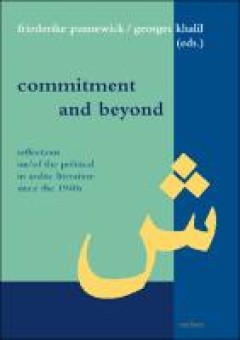
Commitment and beyond : reflections on/of the political in arabic literature …
This book is about the relations between literature, society and politics in the Arab world. It is an attempt to come to terms with the changing conceptualizations of the political in Arabic literature (and to a certain extent theater and the visual arts) in recent modern history. It examines historical and contemporary conceptions of literary commitment (iltizām) and how notions of ‘writing…
- Edition
- -
- ISBN/ISSN
- 9783954906130
- Collation
- 358 p.
- Series Title
- -
- Call Number
- 892.709 YVO c
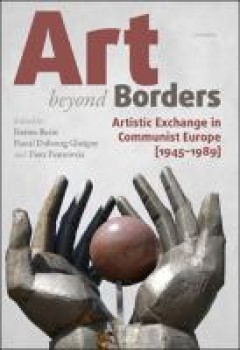
Art beyond borders: artistic exchange in communist Europe (1945–1989)
"This book presents and analyzes artistic interactions both within the Soviet bloc and with the West between 1945 and 1989. During the Cold War the exchange of artistic ideas and products united Europe’s avant-garde in a most remarkable way. Despite the Iron Curtain and national and political borders there existed a constant flow of artists, artworks, artistic ideas and practices. The geograp…
- Edition
- -
- ISBN/ISSN
- 9789633860847
- Collation
- 530 p.: black and white, ill.
- Series Title
- -
- Call Number
- 701.03 BAZ a
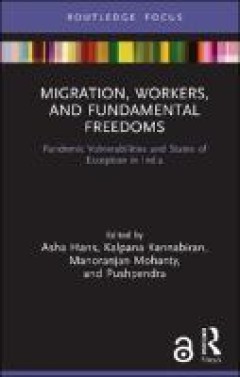
Migration, workers, and fundamental freedoms : pandemic vulnerabilities and s…
The COVID-19 pandemic resulted in a mass exodus of India’s migrant workers from the cities back to the villages. This book explores the social conditions and concerns around health, labour, migration, and gender that were thrown up as a result of this forced migration. The book examines the failings of the public health systems and the state response to address the humanitarian crisis which u…
- Edition
- -
- ISBN/ISSN
- 9781003145509
- Collation
- ix, 127 p. : ill.
- Series Title
- -
- Call Number
- 331.5440954 HAN m
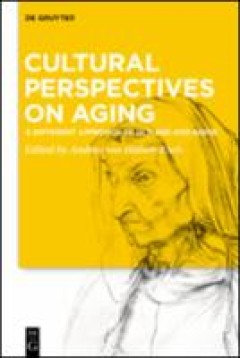
Cultural perspectives on aging : a different approach to old age and aging
The societal significance of old age and ageing are increasing due to demographic developments. Age(ing) is not only a biological and social fact, but also a cultural one. This book reveals the importance of cultural factors in order to build a framework for analyzing and understanding cultural constructions of ageing, bringing together scholarly discourses from the arts and humanities as well …
- Edition
- 3
- ISBN/ISSN
- 9783110683042
- Collation
- 172 p. : ill.
- Series Title
- -
- Call Number
- 900 HUL c
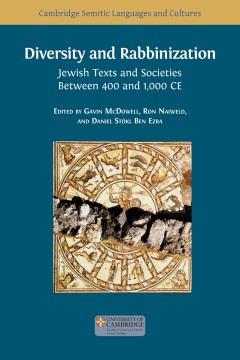
Diversity and rabbinization: jewish texts and societies between 400 and 1000 CE
This volume is dedicated to the cultural and religious diversity in Jewish communities from Late Antiquity to the Early Middle Age and the growing influence of the rabbis within these communities during the same period. Drawing on available textual and material evidence, the fourteen essays presented here, written by leading experts in their fields, span a significant chronological and geograph…
- Edition
- -
- ISBN/ISSN
- 9781783749959
- Collation
- xxiii, 474 p. : ill. : ind. ; 24 cm
- Series Title
- -
- Call Number
- 296.1 DIV d
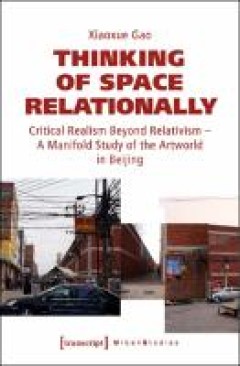
Thinking of Space Relationally : Critical Realism Beyond Relativism - A Manif…
Since the relational turn, scholars have combated methodological universalism, nationalism, and individualism in researching social-spatial transformations. Yet, when leaving the gaps between the traveling and local epistemic assumptions unattended, engaging relational spatial theories in empirical research may still reproduce established theoretical claims. Following the sociology of knowledge…
- Edition
- 8
- ISBN/ISSN
- 9783839455876
- Collation
- 282 p, ill.
- Series Title
- -
- Call Number
- 709.5115 GAO t
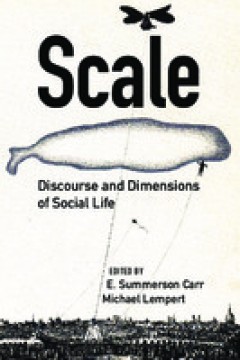
Scale : discourse and dimensions of social life
"Wherever we turn, we see diverse things scaled for us, from cities to economies, from history to love. We know scale by many names and through many familiar antinomies: local and global, micro and macro events. Even the most critical among us often proceed with our analysis as if such scales were the ready-made platforms of social life, rather than asking how, why, and to what effect are scala…
- Edition
- 15
- ISBN/ISSN
- 9780520965430
- Collation
- xi, 277 p. : ill.
- Series Title
- -
- Call Number
- 300.72 LEM s
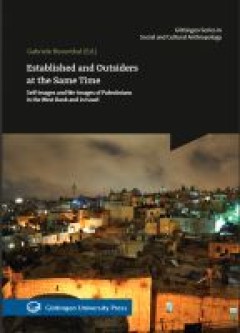
Established and outsiders at the same time : self-images and we-images of Pal…
Palestinians frequently present a harmonizing and homogenizing we-image of their own national we-group, as a way of counteracting Israeli attempts to sow divisions among them, whether through Israeli politics or through the dominant public discourse in Israel. However, a closer look reveals the fragility of this homogenizing we-image which masks a variety of internal tensions and conflicts. By …
- Edition
- 11
- ISBN/ISSN
- 9783863952860
- Collation
- 232 p, ill.
- Series Title
- -
- Call Number
- 305.8927405694 ROS e
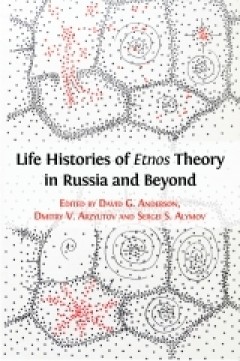
Life histories of etnos theory in Russia and beyond
Life Histories of Etnos Theory in Russia and Beyond makes a powerful argument for reconsidering the importance of etnos in our understanding of ethnicity and national identity across Eurasia. The collection brings to life a rich archive of previously unpublished letters, fieldnotes, and photographic collections of the theory’s early proponents. Using contemporary fieldwork and case studies, t…
- Edition
- -
- ISBN/ISSN
- 9781783745463
- Collation
- xix, 425 p. : ill. : ind. ; 24 cm
- Series Title
- -
- Call Number
- 305.8 LIF l
Empowering civil society in the industrial revolution 4.0
This article describes the efforts made by the government to increase the participation of beginner voters in the simultaneous general election held in 2019. The study uses a qualitative approach with a descriptive type. Data was collected through interviews, observations, and documentation. Data was analyzed using an interactive model with three activities flowing together, namely reducing …
- Edition
- -
- ISBN/ISSN
- 9781003180128
- Collation
- xv, 183 p.
- Series Title
- -
- Call Number
- 370.11509598 SUK e
 Computer Science, Information & General Works
Computer Science, Information & General Works  Philosophy & Psychology
Philosophy & Psychology  Religion
Religion  Social Sciences
Social Sciences  Language
Language  Pure Science
Pure Science  Applied Sciences
Applied Sciences  Art & Recreation
Art & Recreation  Literature
Literature  History & Geography
History & Geography